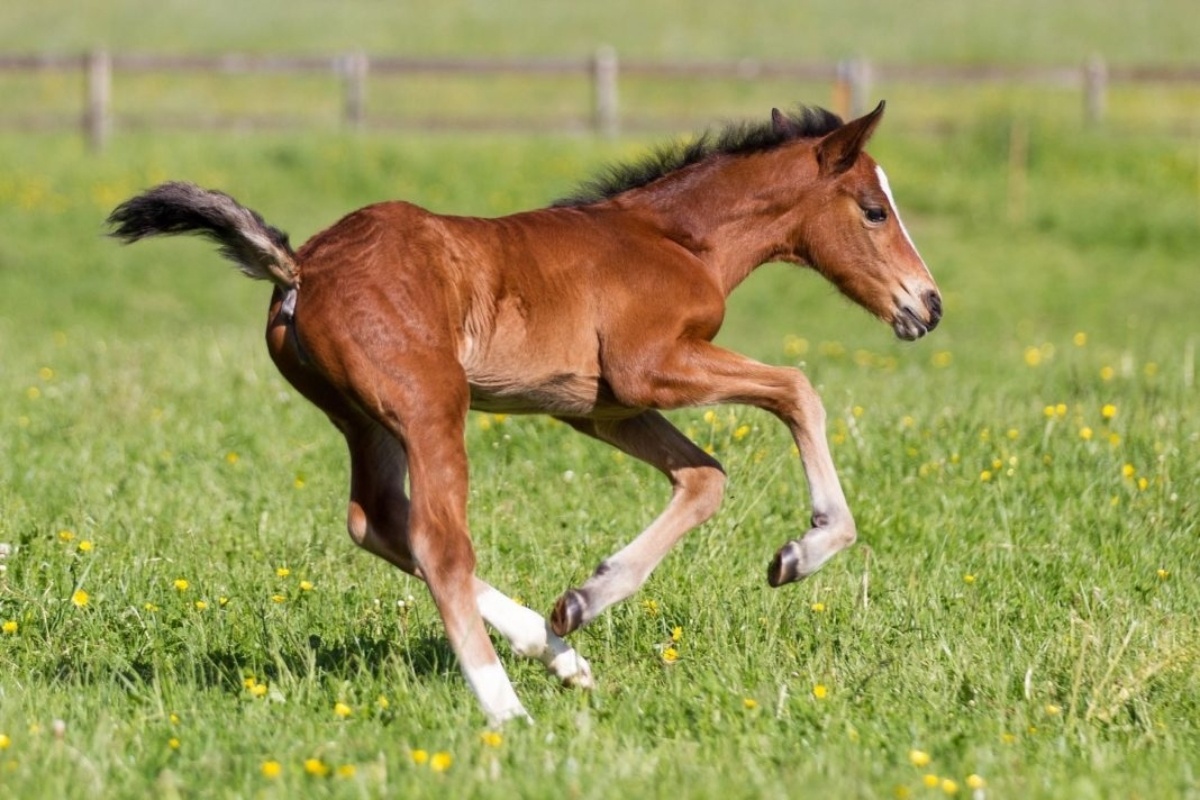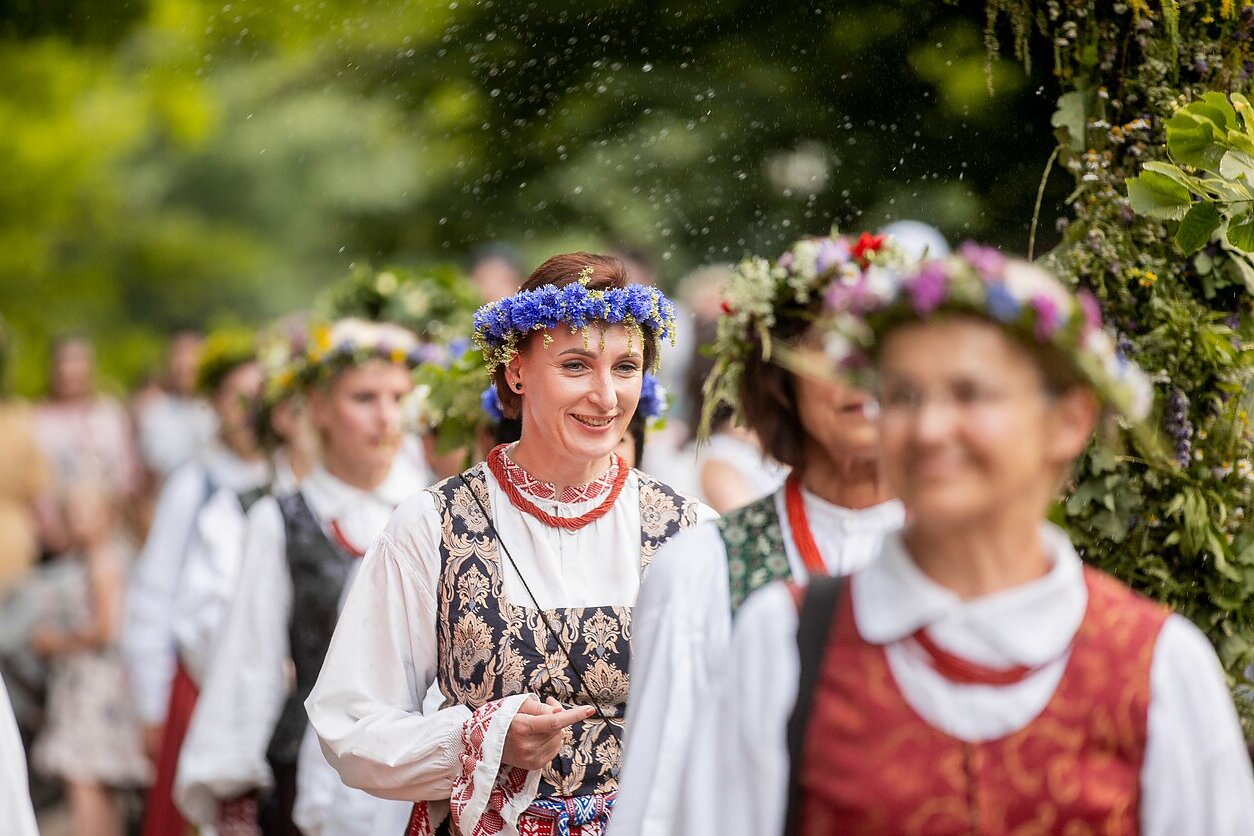
Foals, the young offspring of horses, captivate with their endearing playfulness and delicate features. As they navigate the early stages of life, foals exhibit a sense of wonder and curiosity that is both heartwarming and fascinating. In this article, we'll delve into 20 intriguing facts about foals, shedding light on their development, behavior, and unique characteristics. From their distinctive coat patterns to their rapid growth rate, foals embody the essence of youth and vitality within the equine world. Join us as we embark on a journey to unravel the enchanting allure of foals, gaining a deeper understanding of these remarkable creatures along the way.
Key Takeaways:
- Foals are adorable, playful, and grow rapidly, forming strong bonds with their mothers and peers. Their inquisitive nature and unique vocalizations contribute to their remarkable journey to adulthood.
- From their unique physical traits to their early training and social dynamics, foals embody resilience and beauty. Their journey from playful foals to majestic adult horses is a testament to their boundless potential.
Adorable and Energetic
Foals, the young offspring of horses, are undeniably adorable and full of energy. These young equines captivate our hearts with their playful antics and endearing nature. As they navigate the world on wobbly legs, foals exhibit a sense of curiosity and exuberance that is truly infectious.
Unique Physical Characteristics
Foals are born with distinct physical traits that set them apart from their adult counterparts. Their long legs and slender build are designed to facilitate swift movement and agility, allowing them to keep up with the herd from an early age. Their soft, fuzzy coats and doe-like eyes further contribute to their irresistible charm.
Rapid Growth and Development
Within hours of birth, foals display remarkable progress in their physical abilities. They quickly learn to stand and nurse from their mothers, showcasing an innate resilience and adaptability. As they frolic in the pastures, their boundless energy fuels their rapid growth and development.
Strong Bonds with Their Mothers
Foals share an unbreakable bond with their mothers, relying on them for nourishment, protection, and guidance. This close relationship is essential for the foal's well-being and serves as a foundation for their social interactions within the herd.
Playful Demeanor
Foals engage in playful behavior, frolicking and galloping around the meadows with unbridled joy. These spirited displays not only serve as a means of physical exercise but also facilitate the development of essential motor skills and social interactions.
Inquisitive Nature
Curiosity drives foals to explore their surroundings, prompting them to investigate new scents, sights, and sounds. This inquisitive nature fosters cognitive development and equips them with vital knowledge about their environment.
Unique Vocalizations
Foals communicate with their mothers and peers through a range of vocalizations, from soft whinnies to gentle nickers. These expressive sounds play a crucial role in reinforcing social bonds and conveying emotions within the herd.
Dietary Needs
Foals have specific dietary requirements to support their rapid growth and overall health. Their diet primarily consists of their mother's milk, which provides essential nutrients crucial for their development.
Social Dynamics
Within the herd, foals engage in social interactions that contribute to their emotional and psychological growth. These interactions help them learn important social cues and develop strong bonds with their peers.
Early Training
Foals undergo early training to familiarize them with human interaction and basic handling. This initial exposure lays the foundation for their future training and ensures they grow up to be well-adjusted and responsive horses.
Unique Hoof Care
Foals' hooves require special attention and care to promote healthy development. Regular trimming and monitoring are essential to prevent any issues that may impede their mobility and overall well-being.
Vulnerability to Health Issues
Foals are susceptible to various health challenges during their early stages of life. Vigilant monitoring and prompt veterinary care are crucial in safeguarding their well-being and ensuring they thrive.
Rapid Adaptation to the Environment
Foals exhibit a remarkable ability to adapt to their environment, quickly acclimating to changes in terrain and weather conditions. This adaptability is a testament to their resilience and innate survival instincts.
Unique Sleep Patterns
Foals have distinct sleep patterns, often indulging in short naps throughout the day. These brief periods of rest allow them to conserve energy while remaining alert to potential threats in their surroundings.
Development of Social Hierarchy
As foals mature, they navigate the intricate dynamics of the herd's social hierarchy. Through playful interactions and subtle cues, they establish their rank within the group, laying the groundwork for their future roles as adult horses.
Natural Instincts for Protection
Foals possess natural instincts for self-preservation, relying on their agility and speed to evade potential dangers. These instincts are honed through playful escapades and interactions with their peers, contributing to their overall safety.
Foal Imprinting
Foal imprinting, a process involving positive human interaction during the early stages of life, fosters trust and familiarity with humans. This imprinting lays the groundwork for future training and facilitates a strong bond between the foal and its handlers.
Unique Grooming Behaviors
Foals engage in grooming behaviors, often nuzzling and grooming each other as a means of bonding and displaying affection. These tender interactions reinforce social bonds and contribute to the cohesive nature of the herd.
Equestrian Companionship
As foals mature into adult horses, they often form enduring bonds with their human companions, showcasing a remarkable capacity for loyalty and companionship. These relationships are built on trust, respect, and mutual understanding.
Remarkable Journey to Adulthood
The transition from a playful, spirited foal to a majestic adult horse is a remarkable journey filled with growth, learning, and profound transformations. This metamorphosis embodies the resilience and beauty of these magnificent creatures, leaving an indelible impression on all who have the privilege of witnessing it.
Foals, with their endearing qualities and spirited demeanor, embody the beauty of new beginnings and the promise of boundless potential. As they navigate the early stages of life with exuberance and curiosity, foals captivate our hearts and inspire a sense of wonder and awe. From their playful antics to their tender interactions within the herd, foals exemplify the essence of innocence and vitality, leaving an enduring imprint on the tapestry of the equestrian world. The "20 Facts About Foals" offer a glimpse into the captivating world of these remarkable young equines, inviting us to marvel at their unique attributes and celebrate their remarkable journey to adulthood.
Conclusion
In conclusion, foals are fascinating creatures that captivate us with their adorable appearance and playful demeanor. They embody the beauty of new beginnings and the promise of the future. As they grow and develop, foals exhibit remarkable traits and behaviors that showcase their resilience and adaptability. Understanding the intricacies of foal development and care is essential for fostering their well-being and ensuring their healthy transition into adulthood. By recognizing the unique characteristics and needs of foals, we can appreciate the profound impact they have on our lives and the equestrian world.
FAQs
What are some essential considerations for caring for a newborn foal?
Caring for a newborn foal requires attention to detail and a nurturing environment. Providing adequate nutrition, ensuring a clean and safe living space, and monitoring the foal's health are crucial aspects of newborn foal care. Additionally, social interaction and gentle handling contribute to the foal's overall well-being.
How do foals develop and mature during their first year of life?
Foals undergo rapid physical and behavioral changes during their first year. From learning to stand and nurse shortly after birth to developing social skills and independence as they grow, each stage of a foal's development is a testament to their resilience and adaptability. Understanding these milestones is essential for supporting the healthy growth and development of foals.
Foals' early lives are filled with wonder, growth, and unique experiences. Their adorable appearance and energetic nature make them irresistible to horse enthusiasts and casual observers alike. As you've learned about foals' rapid development, strong maternal bonds, and playful demeanor, your curiosity may be piqued to explore more fascinating facts about these young horses or even delve into the world of music with some astounding facts about Yannis Philippakis, the lead singer of the indie rock band Foals. Let your curiosity guide you on a journey of discovery!
Was this page helpful?
Our commitment to delivering trustworthy and engaging content is at the heart of what we do. Each fact on our site is contributed by real users like you, bringing a wealth of diverse insights and information. To ensure the highest standards of accuracy and reliability, our dedicated editors meticulously review each submission. This process guarantees that the facts we share are not only fascinating but also credible. Trust in our commitment to quality and authenticity as you explore and learn with us.


